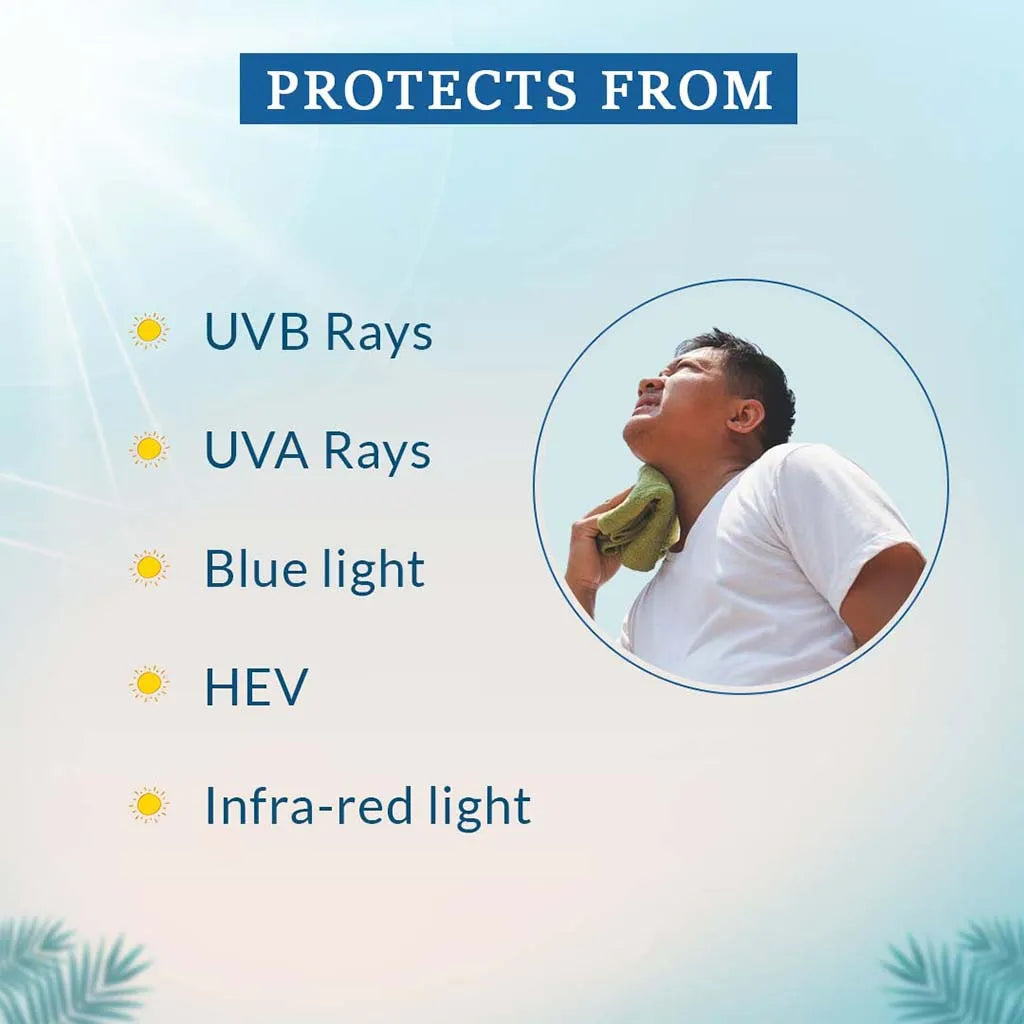do's and don'ts of wearing a sunscreen
By: Sandip KumarSunscreen is an essential part of any skincare routine, helping to protect your skin from the harmful effects of the sun's ultraviolet (UV) rays. However, simply slathering on some sunscreen isn't enough to ensure proper protection. In this article, we'll go over the dos and don'ts of sunscreen application to help you get the most out of your sunscreen and keep your skin safe.
DO’S
- Apply sunscreen before going outside: Sunscreen needs time to absorb into your skin before it can provide adequate protection. Apply it at least 15 minutes before heading out into the sun.
- Use the right amount: A general rule of thumb is to use at least a teaspoon of sunscreen for your face and a shot glass worth for your body. If you use too little, you won't be getting enough protection.
- Reapply often: Sunscreen wears off over time, especially if you're swimming or sweating. Reapply every two hours, or more frequently if you're swimming or sweating.
- Choose the right SPF: Look for a sunscreen with an SPF of 30 or higher. SPF 30 blocks about 97% of UVB rays, while SPF 80 blocks about 98%. Observe how long you stay outdoors and choose the SPF accordingly.
- Use sunscreen even on cloudy days: UV rays can penetrate clouds and still cause damage to your skin. Don't skip sunscreen just because it's cloudy outside.
DON'TS
- Forget to cover all exposed skin: Make sure to apply sunscreen to all exposed skin, including your ears, hands, feet, and any other areas that might be exposed to the sun.
- Rely solely on sunscreen: Sunscreen should be just one part of your sun protection plan. Wear protective clothing, seek shade, and avoid being outside during peak sun hours whenever possible.
- Use expired sunscreen: Sunscreen has a shelf life of about three years. Check the expiration date before using it, and throw it away if it's expired.
- Assume all sunscreens are created equal: Different sunscreens have different ingredients and formulations, so not all sunscreens will work for everyone. Try a few different options until you find one that works well for your skin.
- Apply sunscreen once and forget about it: Sunscreen needs to be reapplied regularly, especially if you're swimming, sweating, or rubbing it off with a towel or clothing.
PRODUCT RECOMMENDATION
The best sunscreen for acne-prone skin and oily skin are:
- Chemfree SPF 30: It is a physical sunscreen that offers broad-spectrum protection against both UVA & UVB rays. It has physical blockers like zinc oxide and titanium dioxide that protect the skin from harmful rays and also protect our skin from irritation and burns.
- Chemical absorber-free formulation
- Suits all skin types
- PA+++
- Shows no white casting of the skin
- Non-comedogenic formulation
- Cosmetically elegant product
- Silicone SPF 40: It is an ultra-light sunscreen that provides superior sun protection against various harmful lights, including UVA, UVB, Blue light, Infra-Red and High Energy Visible Light. It also protects the skin from the onslaught of environmental pollutants.
- Offers SPF 40 & PA+++ protection
- Water-resistant formulation
- Effective antipollution against PM 2.5
- Non-comedogenic, fragrance-free formulation that also suits sensitive skin
The best sunscreen for dry skin:
- Light Weight SPF 80 Sunscreen Lotion: This sunscreen is a lightweight, non-greasy, broad-spectrum SPF 80 lotion that increases skin defence and resistance to UV light, blue light, infrared light, and high-energy visible light.
- Protects the skin from the harmful effects of Infra-Red, High Energy Visible light, Blue Light, UVA & UVB
- Offers SPF 80 & PA++++ protection
- Water-resistant formulation
- Effective antipollution against PM 2.5
- Non-comedogenic
In conclusion, applying sunscreen correctly is essential to keeping your skin safe from the sun's harmful rays. Remember to apply it early, use the right amount, reapply often, and choose the right SPF. Additionally, don't forget to cover all exposed skin, use sunscreen as part of a broader sun protection plan, avoid using expired sunscreen, and try different sunscreens until you find one that works for you. With these tips in mind, you can enjoy the outdoors while keeping your skin healthy and protected.
Read more - How to pick the best vitamin c serum?


